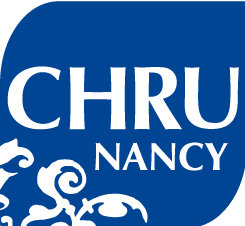The hospital clinical research assistant, or hospital clinical research technician works in direct collaboration with the investigatorIt is a specific term to clinical research. Investigators are doctor who manage and supervise the conduct of studies. They are the main contact persons with the volunteers (healthy or sick) and are those who inform, do the clinical exam, and retrieve the consent. There are two types of investigators: main investigator (referent) and coordinator investigator (when a study is conducted in various centres). More, who manages and supervises the clinical trials and medical teams at the hospital, within the treatment sites. He delegates various tasks of the study to her. Inlcuding:
- Welcoming and advising subjects and volunteers.
- Dealing with the findings of the study: filling and correcting the case report forms before they are validated by the investigatorIt is a specific term to clinical research. Investigators are doctor who manage and supervise the conduct of studies. They are the main contact persons with the volunteers (healthy or sick) and are those who inform, do the clinical exam, and retrieve the consent. There are two types of investigators: main investigator (referent) and coordinator investigator (when a study is conducted in various centres). More, registering adverse events (AE), preparing monitoring visits (providing the subjects’ medical files),
- Ensuring and facilitating the handling of logistic and administrative aspects of the trial: receiving and verifying the storage conditions of the required material for the study, such as documents, protocols, questionnaires, subjects’ consent formA Consent form is a signed document that confirms that a volunteer, “healthy” or sick, agrees to participate in a specific clinical study. In order to make the consent valid, the person who signs the document must do it in a free and informed way. It means they are not compelled to sign it (in any way), and must have completely understood what is going to happen during the study they take part in, and how it is conducted. Thus, before the exam, a doctor systematically delivers complete information on the investigation purposes, on the way it is conducted, and he answers all the questions that may have the future subject. For some investigations (called non-interventional), consent is not required. Then we talk about a non-opposition, i.e, a tacit agreement. It means that the subject who participates in a given investigation agrees that their data are used, for instance. However, they can make an opposition to their doctor. More, and archiving at the end of the study,
- Ensuring efficient communication between the sponsorIt is a specific term in biomedical research. They are natural or legal persons. For institutional research, they can be CHRU, INSERM, CNRS, etc. For non-institutional research, they usually are industries or private laboratories. The sponsor plays a major role in biomedical research:
• They take the initiative to conduct an investigation
• They manages it - they make sure that GCP are respected, as well as legal requirements, etc. (quality system) - they subscribe to an insurance - they are the contact person with the competent authority ANSM and CPP - they monitor the studies - they archive the documents (archiving period: 15 years)
• They make sure that the investigation is financed
More and the investigatorIt is a specific term to clinical research. Investigators are doctor who manage and supervise the conduct of studies. They are the main contact persons with the volunteers (healthy or sick) and are those who inform, do the clinical exam, and retrieve the consent. There are two types of investigators: main investigator (referent) and coordinator investigator (when a study is conducted in various centres). More: participation in implementation meetings and to other training meetings, collaborating with specialised departments as well as with the pharmacovigilance department, data management and the promoter’s project team. - Subjects’ follow-up: organising subjects’ appointments according to the schedule of visits, preparing and handling subjects’ questionnaires, helping the investigatorIt is a specific term to clinical research. Investigators are doctor who manage and supervise the conduct of studies. They are the main contact persons with the volunteers (healthy or sick) and are those who inform, do the clinical exam, and retrieve the consent. There are two types of investigators: main investigator (referent) and coordinator investigator (when a study is conducted in various centres). More for randomization (preparing the required elements), preparing biology kits, informing the analysis laboratory, preparing and sending tubes, and verifying the sample storage.
At CIC-IT, the clinical research assistant is specifically responsible for multidisciplinary work with protocols where MRIMRI means Magnetic Resonance Imaging but it can also mean the exam, the image, or the imager. Further information on MRI and its technique More plays a central role. In addition to the previously mentioned task, she manages the database of healthy volunteers, organises their recruitment and plans the MRIMRI means Magnetic Resonance Imaging but it can also mean the exam, the image, or the imager. Further information on MRI and its technique More roster.
She works closely with the clinical study coordinators and investigators, and participates in the writing of essential and practical documents for the current clinical studies: case report forms, information letter and consent forms, standard operating procedures (SOPs).







